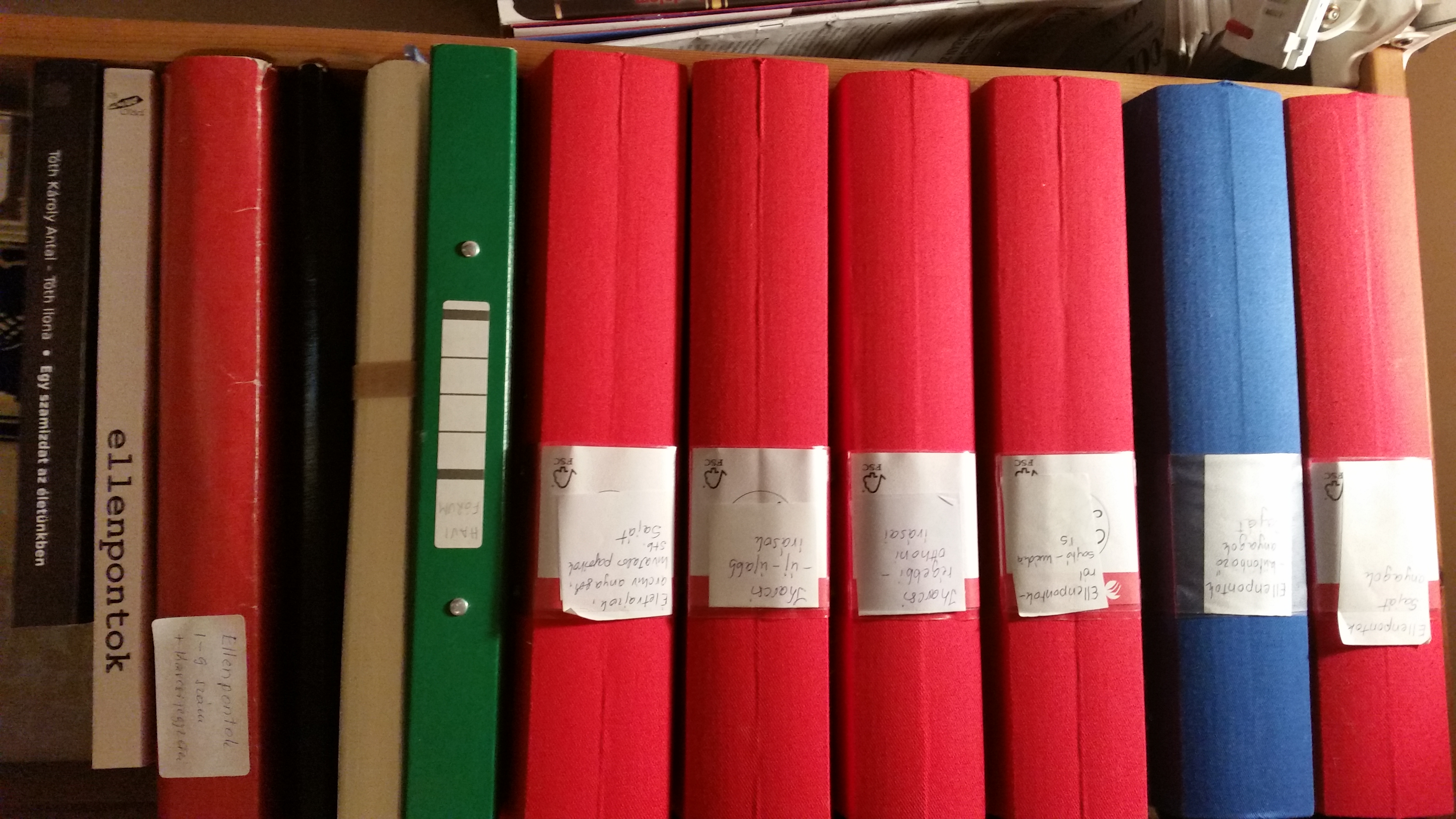Apart from the official addressees, the “Call for protest” – also included in the Göteborg collection – was published in the most prestigious samizdat of the Kádár era which addressed the “second public sphere,” Beszélő. The “News” column of issue no. 5–6 (December 1982) published it under the title “Cases of Harassment by Police Forces in Transylvania – A Hungarian Act of Protest.” The same edition of Beszélőalso included the fundamental documents of Ellenpontok no. 8 (October 1982), “Memorandum” and “Programme Proposal.”, while the previous numbers (1–4) were published in detail in issue no. 4 (September 1982) of Beszélő. The “Call for Protest” was signed by seventy-one representatives of the Hungarian opposition of the time – writers, literary historians, historians, editors, economists, lawyers, sociologists, philosophers, philosophy historians, translators, film directors, poets, pianists, architects, linguists, journalists, academicians, actors, public writers, sculptors, biologists, ethnographers, and a three-time Olympic champion.
The Call has the following content: “On 6 and 7 November 1982 Romanian state security personnel arrested several young Hungarian intellectuals in Transylvania. They conducted searches in their homes and confiscated documents relating to the political situation in Hungary and Transylvania. The exact number of persons arrested is not known yet. The following names are known: Attila Ara-Kovács, writer-philosopher, Attila Kertész, actor, Géza Szőcs, poet, and Károly Tóth, teacher. In the course of a week several persons were interrogated, among them being the agricultural engineer Lóránt Kertész and his wife Éva Kertész, Márta Józsa, Éva Bíró, András Keszthelyi, a philosophy student, together with the Tóth couple. Some of them, for instance Géza Szőcs, Károly Tóth, and his wife, were physically abused. After a few days Attila Ara-Kovács and Károly Tóth were released on the condition that they cannot leave the city (Oradea) or their homes. We still have no information regarding the whereabouts of the remarkable poet Géza Szőcs, whose name is known in all Hungarian-speaking territories. Not even his closest relatives and friends know where he is. We have reason to suspect that the political police has still not released him. We make an appeal to everyone: protest!We also call on our Romanian friends: please intervene for the release of Géza Szőcs!This call for protest has been sent by its signatories to the president of the Ministerial Council of the Hungarian People’s Republic, to the directory board of the Union of Hungarian Writers, and to the Hungarian PEN Club.” (Beszélő Összkiadás 1992)
The call for protest is not entirely accurate due to the lack of authentic sources. It is mostly based on rumours and assumptions, and although it abounds in information it remains the instrument of the selected few. The moderate form of the collective enforcement of interests, as expressed through the “media outlets” – the samizdat – is obviously an organised one, aimed at improving the situation of those affected. There are no data regarding the immediate effects of the call for protest in Romania, nor whether the leaders of the MSZMP (Hungarian Socialist Workers’ Party) too any immediate steps in order to change the minority policy in Romania. At the same time, the official Hungarian circles reproached “in the course of internal discussions” that the call reached international media outlets sooner than the Hungarian government. In December of 1982 the editorial team of Beszélő categorically denied this, arguing that such accusations only “discredit a fully legitimate civil initiative,” and divert the attention from the real issue, namely, “what’s going on with the Hungarian intellectuals in Romania and what can Hungarian public opinion and the Hungarian state do against the serious violation of minority rights.” (Beszélő Összkiadás 1992).

